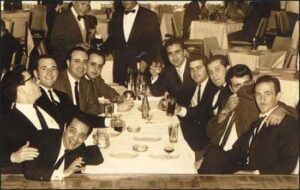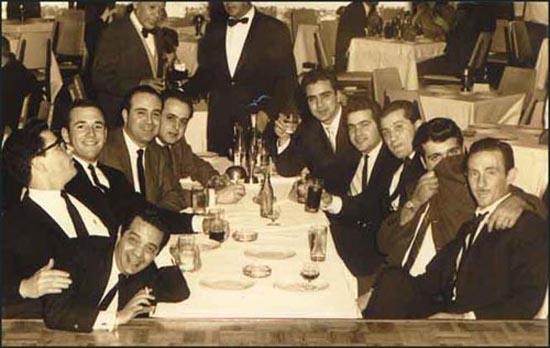Background

Operation 40 was a covert operation established by the Central Intelligence Agency (CIA) in 1960 during the early years of the Cold War. The operation was initially conceived as a counterintelligence and counterinsurgency task force aimed at undermining communist influence in Latin America, particularly in Cuba. This operation was part of the broader U.S. strategy to contain the spread of communism in the Western Hemisphere, which was seen as a direct threat to U.S. national security.
Operation 40 was formed in response to the growing concern over Fidel Castro’s communist regime in Cuba, which had come to power in 1959. The operation was authorized by President Dwight D. Eisenhower and involved the recruitment of anti-Castro Cuban exiles, CIA operatives, and other U.S. intelligence personnel. The main objectives of Operation 40 were to gather intelligence, conduct sabotage, and carry out assassination missions against key figures within the Castro government.
Operation 40 played a significant role in the preparation for the Bay of Pigs invasion in April 1961. The operation was involved in intelligence-gathering missions, identifying targets for sabotage, and planning the assassination of Cuban leaders, including Fidel Castro. However, the Bay of Pigs invasion, which aimed to overthrow Castro, ended in failure, and the role of Operation 40 in this disaster has been a subject of considerable debate among historians.
Beyond Cuba, Operation 40 also conducted activities throughout Latin America, aiming to destabilize leftist movements and support pro-U.S. regimes. The operation’s activities included political assassinations, sabotage of infrastructure, and the dissemination of propaganda to undermine communist influence.
Operation 40 has been surrounded by controversy, particularly regarding its alleged involvement in assassinations and other covert actions that violated international law. Critics have argued that the operation represented an extreme approach to Cold War geopolitics, with little regard for the long-term consequences for the countries involved. The operation’s connection to various assassination plots, including those against Castro, has fueled numerous conspiracy theories over the years.
Operation 40 officially disbanded in the early 1960s, but its legacy lived on through other covert CIA operations during the Cold War. The operation is often cited as an example of the U.S. government’s willingness to engage in covert and sometimes morally questionable activities to achieve its strategic goals during this tense period in global history.
Document Archive
 Central Intelligence Agency (CIA) Records on Operation 40 [7 Pages, 1.47MB] – Although the CIA released a few pages, they went on to state they would neither confirm nor deny any additional pages existed. Why, after 50+ years, would they remain such a secret?
Central Intelligence Agency (CIA) Records on Operation 40 [7 Pages, 1.47MB] – Although the CIA released a few pages, they went on to state they would neither confirm nor deny any additional pages existed. Why, after 50+ years, would they remain such a secret?
